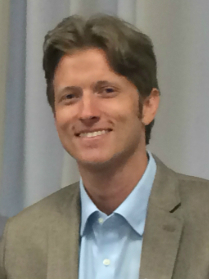Abe Gibson has been appointed assistant professor at University of Texas, San Antonio.
Abraham Gibson

Ph.D., Department of HistoryFlorida State University
In Search of the Social Impulse: Science and Conciliation during the Interwar Years, 1919-1939
According to the prevailing historiographical opinion, the early twentieth century was an unremarkable period in the history of evolutionary thought. Commentators routinely dismiss biologists from this time as naïve and even lazy, insisting that they offered little of lasting value to the theoretical foundations of evolutionary biology. My research suggests otherwise. The historical record reveals that early-twentieth-century biologists were neither naïve nor lazy, and that they drew inspiration from many of the same fundamental riddles that continue to motivate biological research today. In particular, they wanted to know why any organism would ever assist another when doing so compromised its autonomy and decreased its fitness. Admittedly, their research may have lacked focus during the first two decades of the twentieth century, but everything changed following the Great War. In response to the most destructive war in the history of the planet, biologists from all around the world began studying the scientific principle of cooperation with increased urgency. Although these biologists often studied organisms that were not only far removed from one another in a phylogenetic sense, but also located at different “levels” of hierarchical organization, they nevertheless reported the exact same phenomenon: collections of otherwise autonomous individuals integrating with one another to produce individuals of a higher order still. They invariably concluded that cooperation had influenced the course of evolution just as much as competition, and that this tendency toward cohesion sometimes resulted in new individuals at new levels of the biological hierarchy. Outside the profession, philosophers, statesmen, and even cosmologists seized upon the idea that living things were inherently sociogenic. The theory was especially popular in all the places recently scarred by war, including Africa, Asia, Europe, and North America. It was a dizzying time, perhaps the most holistic in the entire history of science, and it was fueled by the heady conviction that nature favored harmony no less than conflict. And then, right when biologists felt certain they were on the precipice of grasping some universal truth about the origin of the social impulse, the whole world descended back into the hellish depths of war. Read the research report here.
Updates
Abe recently co-edited a Focus Section on "Computational History and Philosophy of Science" and co-authored an article, "The History of Science and the Science of History: Computational Methods, Algorithms, and the Future of the Field," both in the same issue of Isis (September 2019). Abe also published an article, "Moonshine Capital of the World: A Visual History of Untaxed Whiskey in Franklin County, Virginia," in Environmental History (July 2019).
Abe has co-authored a book chapter, titled "Swamp Things: Invasive Species as Environmental Disaster," in an edited volume titled Environmental Disaster in the Gulf South: Two Centuries of Catastrophe, Risk, and Resilience (Baton Rouge: Louisiana State University Press, 2018). Abe is currently working on a book about pythons in the Everglades, under advance contract with University Press of Florida.
Abe Gibson's chapter "Invasive Species as Environmental Disaster" is forthcoming in Disaster and Risk in the Gulf South, edited by Cindy Ermus (Louisiana University Press, 2016).
Gibson has secured a book contract with Cambridge University Press for a revision of his dissertation, Born to Be Feral: An Evolutionary History of Domestic Animals in the American South. He made presentations at the Southern History of Science and Technology Conference, the American Society for Environmental History Annual Meeting, and the Evolution and Ethics Conference in Tallahassee, Florida. On June 6 he will present on "Counting the Animals: Insights from the 2012 Agricultural Census," at the Agricultural History Society Annual Meeting in Lexington, Kentucky.
Abe's first book, Feral Animals in the American South: An Evolutionary History, is forthcoming with Cambridge University Press and is expected to appear in summer of 2016.
Abe was recently hired as Lecturer in the School of Historical, Philosophical, and Religious Studies at Arizona State University. Abe's first book, Feral Animals in the American South, was published by Cambridge University Press on August 31, 2016.
Gibson has secured a book contract with Cambridge University Press for a revision of his dissertation, Born to Be Feral: An Evolutionary History of Domestic Animals in the American South. He made presentations at the Southern History of Science and Technology Conference, the American Society for Environmental History Annual Meeting, and the Evolution and Ethics Conference in Tallahassee, Florida. On June 6 he will present on "Counting the Animals: Insights from the 2012 Agricultural Census," at the Agricultural History Society Annual Meeting in Lexington, Kentucky.
Gibson has had two book chapters accepted for publication: "Beasts of Burden: Feral Burros and the American West," in The Historical Animal, edited by Susan Nance (Syracuse University Press, 2015), and "Sociobiology and Evolutionary Psychology" (co-written with Michael Ruse) in A Companion to the History of American Science, edited by Mark Largent (Wiley, 2015). He will make a presentation at the American Society for Environmental History annual meeting in March 2015, entitled "Feral Burros in the American West: The Environmental Legacy of Nineteenth-Century Mining Booms."